It took just two bars of Debussy's La plus que lente for Stephen Hough to transport the entire Royal Festival Hall to Paris. The nearest thing the French composer ever wrote to a café waltz – inspired by a gypsy band in a local hotel – this bewitching, louche yet elusive little piece might in other hands make a more suitable encore than opener. But it set the tone for an evening in which Hough’s sleight-of-hand seemed to shrink the spaces of the venue: he is one of those rare pianists who, rather than “projecting to the back row”, produces a touch so seductively quiet that his listeners, metaphorically speaking, are drawn irresistibly closer to him instead.
Some issues with the instrument (a Yamaha – a relatively unusual choice) at first threatened to interfere with this enchantment. One casualty of the otherwise welcome ban on ivory use in pianos is that some of the substances used to create the keys today are less porous than the original, and Hough seemed obliged to wipe sweat from the keyboard between pieces. For this primarily sepia-and-candles programme, the minute gradations of softness that this piano permitted were ideal, though at fuller moments its tone sometimes left one wishing for a warmer, rounder bass sonorousness in place of its angular clarity.
Debussy’s Estampes – "Etchings" – followed naturally on from the waltz, adding to that portrait of Parisian Bohemianism the composer’s delicate response to gamelan music in "Pagodes", the sultry heat of a Spanish twilight in "La soirée dans Grenade", and the pointillist precision of "Jardins sous la pluie". Hough’s plasticity of rhythm proved perfectly judged: he manages to be rigorous yet flexible at the same time, giving the music ideal backbone without rigidity, and observing minute details of colour and voicing without ever losing the unifying flow. It’s living proof of how a firm framework can support ultimate imaginative freedom within it.
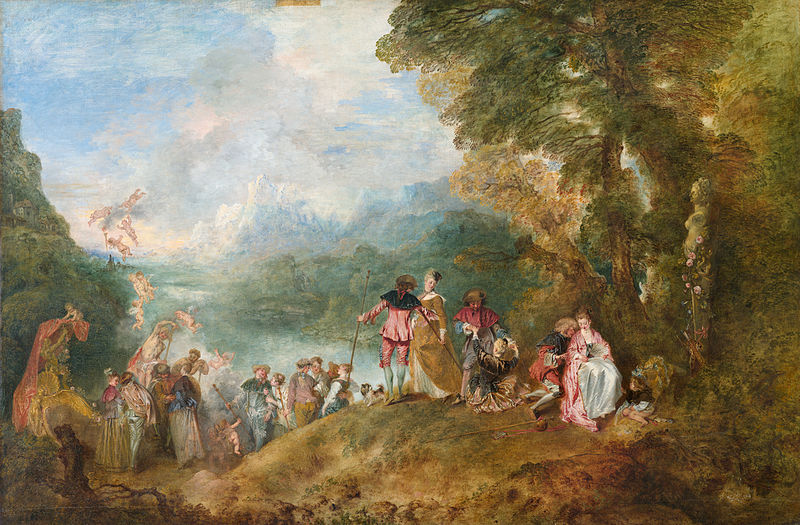 Chopin’s Four Ballades were the filling for the programme’s musical sandwich: Hough played the second and first (in that order) just before the interval and the remaining two after it, flanked at each end by Debussy. It’s often said in pianistic circles that Debussy’s piano writing grew out of Chopin while Ravel’s grew out of Liszt; a broad generalisation, perhaps, but the affinity of the first two became evident as Hough wrought his colouristic magic with that supple rubato and meditatively songful phrasing, pacing the drama of each piece as the unfolding of an epic narrative à la Adam Mickiewicz (the Polish poet on whose writings some of the Ballades are sometimes thought to be based). The coda of no1 left bleak questions hanging unanswered behind the cataclysmic final plunge; No 3 struck a wonderfully judged balance between effusion and delicacy; and the contrapuntal writhings of No 4’s coda were kept remarkably clear without sacrificing any intensity of atmosphere. Above all, Hough had the ability to convince us – even while scrupulously observing Chopin’s instructions – that he was improvising the whole lot there and then.
Chopin’s Four Ballades were the filling for the programme’s musical sandwich: Hough played the second and first (in that order) just before the interval and the remaining two after it, flanked at each end by Debussy. It’s often said in pianistic circles that Debussy’s piano writing grew out of Chopin while Ravel’s grew out of Liszt; a broad generalisation, perhaps, but the affinity of the first two became evident as Hough wrought his colouristic magic with that supple rubato and meditatively songful phrasing, pacing the drama of each piece as the unfolding of an epic narrative à la Adam Mickiewicz (the Polish poet on whose writings some of the Ballades are sometimes thought to be based). The coda of no1 left bleak questions hanging unanswered behind the cataclysmic final plunge; No 3 struck a wonderfully judged balance between effusion and delicacy; and the contrapuntal writhings of No 4’s coda were kept remarkably clear without sacrificing any intensity of atmosphere. Above all, Hough had the ability to convince us – even while scrupulously observing Chopin’s instructions – that he was improvising the whole lot there and then.
Debussy apparently used to compose on a Bechstein upright and the cushioned gentleness of that smaller, more intimate soundworld came to life in Children’s Corner, in which Hough suffused its streamlined contours and clear textures with enchanting affection. The elephant Jimbo seemed to hum his baritone lullaby, the dancing snow smoothed its way across a soft horizon and the Little Shepherd piped within a magically undulating landscape. I’m not sure whether we are still allowed to call the final piece by its title, "Golliwog’s Cakewalk", but Hough relished its rhythmic grunginess and snarky nod at the Tristan und Isolde Prelude, making it one of the highlights of an already outstanding recital.
To close, L’isle joyeuse (inspired by Watteau's L'embarquement pour Cythère, pictured above) flared out, its luminous trills sensual, brilliant and exultant, its textures translucent and glowing – a musical painting that’s an ideal choice for a pianist who is himself also a painter, composer and poet. Its structure, incidentally, wouldn’t have disgraced Chopin in Ballade mode and has considerable affinities with his Barcarolle: it proved the perfect butter to bind up this musical sandwich.
Speaking of making things up on the spot, two of Hough’s encores were indeed his own work: a transcription of Dulcinea’s Variation from Minkus’s ballet score Don Quixote, and an original piece, Osmanthus Romp, which finds Hough as composer letting his imagination run riot with Kapustin-like rhythmic bedazzlement. “I feel like the naughty boy in school,” he remarked to us all, before offering as a final calming device the Grieg Nocturne (from the Lyric Suite Op 54). Perhaps it’s that impish naughtiness, the willingness to keep his powers of observation and imagination as vivid a child’s, that helps to make Hough’s mature artistry so joyously memorable.



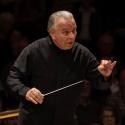
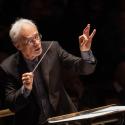



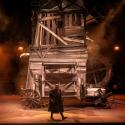
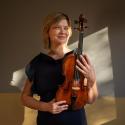


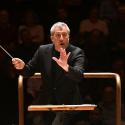
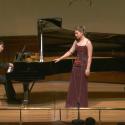
Add comment